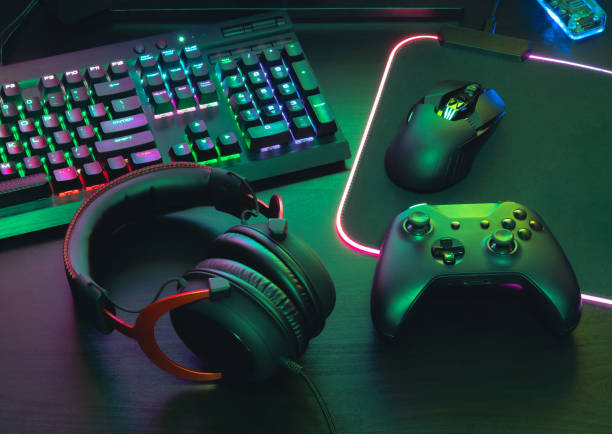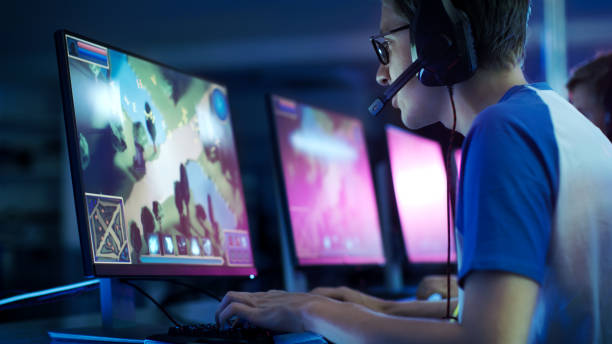Why is My Game Lagging?
Experiencing the frustration of game lagging can significantly hinder your gaming experience. If you find yourself asking, “Why is my game lagging?” you’re not alone. Game lagging refers to the slowdown or delay in the game’s performance, leading to choppy gameplay, delayed responses, or stuttering visuals.
Several factors can contribute to game lagging, including hardware limitations, outdated drivers, insufficient system resources, network issues, or even in-game settings.
In this article, we will explore the potential reasons behind game lagging and provide tips and solutions to help you address and minimize the issue, ensuring a smoother and more enjoyable gaming experience.

What Are The Possible Reasons Behind My Game Lagging?
There can be several reasons behind game lagging. One possible reason is hardware limitations, where your computer’s components may struggle to meet the requirements of the game, resulting in reduced performance.
If you are playing games such as Sugar Sugar unblocked game, Subway Surfer, PUBG, and many more games. Sometimes the internet connection is a big problem or those applications which are running in the background can be a reason.
Outdated or incompatible drivers, including graphics drivers, can also contribute to game lagging. Insufficient system resources, such as low RAM or a slow CPU, can impact the game’s smoothness.
Network issues, such as high latency or a poor internet connection, can cause lag in online games. Additionally, in-game settings, such as high graphics settings or excessive background processes, can also lead to game lagging. Identifying these factors can help address the issue of game lagging and optimize your gaming experience.
Can Outdated Graphics Drivers Lead To Game Lagging?
Yes, outdated graphics drivers can indeed lead to game lagging. Graphics drivers act as a bridge between your operating system and graphics card, ensuring optimal communication and performance.
When your graphics drivers are outdated, they may not be fully compatible with the latest games or lack necessary optimizations, resulting in reduced performance and game lagging.
Keeping your graphics drivers up to date is crucial for maintaining smooth gameplay, as updated drivers often include bug fixes, performance improvements, and optimizations specifically tailored for new game releases.
Regularly checking for and installing the latest graphics driver updates can help minimize game lagging and ensure optimal gaming performance.
How Can I Fix My Game’s Lag?
To fix the lag in your game and improve performance, follow these steps:
- Update Drivers: Ensure that your graphics drivers and other system drivers are up to date to optimize compatibility and performance, addressing potential issues related to game lagging.
- Adjust Graphics Settings: Lower the graphics settings within the game to reduce the strain on your hardware and improve frame rates, reducing game lagging.
- Close Background Processes: Close unnecessary applications and background processes to free up system resources and prioritize the game, minimizing game lagging.
- Allocate More System Resources: Increase the allocation of resources to the game by adjusting the priority settings in the task manager, dedicating more CPU and RAM to the game.
- Check for Hardware Limitations: Assess your hardware specifications and ensure they meet or exceed the minimum requirements of the game. Consider upgrading components if necessary to alleviate game lagging.
- Optimize Network Connection: Reduce network-related lag by connecting your device via an Ethernet cable, closing bandwidth-consuming applications, or choosing a server with lower latency.
- Scan for Malware: Perform a malware scan to eliminate any potential threats that might be affecting your system performance and causing game lagging.
By following these steps, you can troubleshoot and fix the lag in your game, improving its overall performance and minimizing game lagging.
Does My Internet Connection Affect Game Lag?
Yes, your internet connection can significantly affect game lagging. A slow or unstable internet connection can result in high latency, packet loss, and increased response times, leading to game lagging.
In online multiplayer games, a poor connection can cause delays in player actions and hinder smooth gameplay. To minimize game lagging caused by the internet connection, ensure a stable and high-speed connection.
Consider using a wired Ethernet connection instead of Wi-Fi, closing bandwidth-consuming applications, or selecting servers with lower latency. A reliable and fast internet connection is essential for reducing game lagging and ensuring a more enjoyable gaming experience.
Are There Any Common Issues That Cause Game Lagging?
Yes, there are common issues that can cause game lagging. Some of them include:
- Insufficient Hardware Resources: Low RAM, a slow CPU, or an outdated graphics card can result in game lagging due to inadequate processing power.
- Outdated Drivers: Using outdated graphics drivers or other system drivers can cause compatibility issues and contribute to game lagging.
- High Graphics Settings: Running games at high graphics settings that exceed your hardware capabilities can lead to lagging as your system struggles to render the visuals.
- Network Issues: Poor internet connection, high latency, or network congestion can result in lag when playing online games.
- Background Processes: Running resource-intensive applications or having too many background processes can consume system resources and cause game lag.
- Overheating: Inadequate cooling or dust accumulation on hardware components can lead to overheating, affecting performance and causing it.
By addressing these common issues, you can minimize the occurrence of game lagging and enjoy smoother gameplay.
Are There Any Known Patches Or Updates To Address Game Lag In Specific Titles?
Yes, game developers often release patches or updates to address game-lagging issues in specific titles. These updates may include performance optimizations, bug fixes, and enhancements aimed at improving the overall gameplay experience.
It is recommended to regularly check for updates for your specific game and install them to take advantage of any fixes that can potentially address game lagging.
Official game websites, forums, or social media channels are reliable sources to stay informed about the latest patches or updates released to combat game lagging and ensure smoother gameplay.
What Are Some Troubleshooting Steps To Reduce Game Lag?
To reduce game lag and improve overall performance, follow these troubleshooting steps:
- Reduced graphical: Change the game’s graphical settings to a lower level, reducing the strain on your system and minimizing game lagging.
- Update Drivers: Keep your graphics drivers and other system drivers up to date to ensure compatibility and optimize performance, addressing potential issues related to game lagging.
- Close Background Processes: Close unnecessary applications and background processes to free up system resources and prioritize the game, minimizing game lagging.
- Check for Overheating: Monitor your computer’s temperature and ensure proper cooling to prevent overheating, which can lead to performance issues and game lagging.
- Optimize Network Connection: Use a wired Ethernet connection, close bandwidth-consuming applications, or select servers with lower latency to reduce network-related lag in online games.
- Upgrade Hardware: Assess your hardware specifications and consider upgrading components like RAM, CPU, or graphics card if they fall below the recommended requirements, alleviating game lagging.
By following these troubleshooting steps, you can effectively reduce game lagging, optimize your gaming experience, and enjoy smoother gameplay.

Keep your graphics drivers and other system drivers up to date to ensure compatibility and optimize performance, addressing potential issues related to game lagging